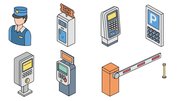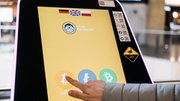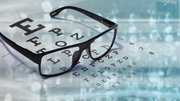Article
Hotel kiosks do the right things
Getting the most of a hotel check-in kiosk deployment.

January 27, 2008
The hotel industry is constantly changing. New hotel brands are emerging to target specific age groups and lifestyles. Boutique hotels focus on high-end brand messaging, luxurious amenities, chic décor and hip cocktail lounges. Extended-stay hotels focus on low cost, business traveler essentials, comfort and security.
Within this changing landscape, hotels are looking to differentiate their brand. Understanding and satisfying guests' needs is at the heart of a great marketing vision. One of the differentiators is self-service. With the proliferation of self-service in the airline/airport industry, guests are looking for a self-service option when they stay at a hotel.
"Many people have already been exposed to it in many forms," said Robert Chan, practice leader forIBMCanada's e-access solutions. "The natural evolution is to extend it to hotel services and give the guest choice and control."
Doing it right
Many people find themselves often waiting in lines at grocery stores, retails stores, banks and hotels. They get frustrated and impatient. So, if they have a self-service option, they ask themselves if it is better service or no service.
"In my mind, and to many people, it is better service if I have the option to go (to a kiosk)," said Clyde Dishman,NCR's director of hospitality industry marketing. "Is it better service? I certainly think so in many scenarios."
However, to be successful at giving people a superior alternative, it needs to do everything that a front-desk person could do and, in most cases, it needs to do more. At the beginning of a self-service deployment, NCR looks at what the needs and requirements are for successfully deploying kiosks in hotels, Dishman said.
Customer attitudes
With an install base of more than 800 hotel check-in/out kiosks in approximately 500 hotel properties, IBM has learned invaluable lessons for successful rollouts.
"Both guests and staff expect the kiosk to do the right thing. Each group has a different set of expectations," Chan said.
The guest expects the kiosk to perform as well as or better than a staff member person. It should offer the guest control, choice and convenience.
"The bar has been set by the airline check-in success," he said. "Hotel kiosks must take advantage of the many years of airline check-in refinement."
Another important thing for check-in kiosks is that they need to run smoothly, right away. Most people take this step for granted.
"Hotels have a small window of time in which to impress the guest or they will not try the kiosk again," Chan said.
Much like a new staff member that has undergone training, hotel staffs expect the kiosk to perform efficiently.
"One would assume the kiosk has been trained properly," Chan said. "This means the check-in and check-out success rate needs to be high, with the widest possible acceptance coverage."
There will be some exceptions, such as cash payment or requirement of photo ID. In those cases, the staff needs to understand all the limitations so that the kiosks are looked at in the most positive light versus being deemed a failure.
"The kiosk is their teammate," Chan said. "It is there to help during the busiest times. For simple transactions, the staff should encourage the guest to use the kiosk. For more timely interactions like a customer service issue, staff will deal with guests face to face."
Most of the hotel check-in kiosks today are less capable than their staff counterparts. To delight the guest and offer more control, hotels are adding new features that are not present at the front desk. Much like how the airlines introduced the seat map, hotels are looking at this control feature to meet guest expectations. Most everyone, at one point in time, has thought of this as they approach the front desk.
Hotel kiosks are not utilized throughout the day. There are peak periods in the morning when check-outs are frequent. Check-ins then become frequent later in the afternoon. So, for a large percentage of the day, the kiosk is unused. To help recoup the investment cost as well as market their presence, hotels are adding new attractions to the kiosk.
One very successful feature has been airline Web check-in. Leveraging the airline and travel expertise of IBM, the IBM hotel application uses the same Common Use Self Service platform that powers thousands of airline check-in devices in 28 airports worldwide.
"Using the IBM Hotel solution along with IBM NetCDS, hotels have successfully incorporated a much-needed function for hotel lobbies," Chan said. "No longer does a guest have to request their boarding pass to be printed, find a printer in the business center or arrive early at the airport to check-in."
This story is excerpted from the free how-to guide "Self-Service Check-in at Hotels and Motels."
 ChatGPT
ChatGPT Grok
Grok Perplexity
Perplexity Claude
Claude










